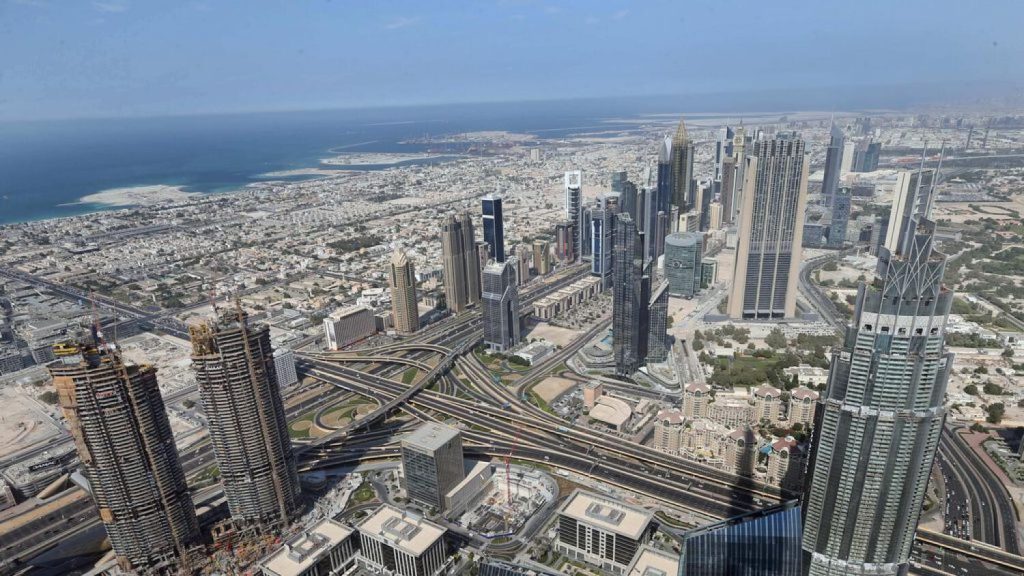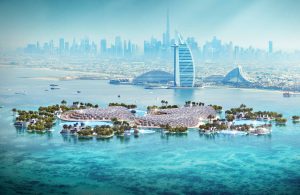Dubai’s resilient real estate sector: Transitioning from conflict to prosperity
The emirate has long been a safe haven for investors seeking stability and high returns
December 6 2023 credits: Sankey Prasat
The Middle East has been marked by a lengthy history of conflicts, and each of these events has exerted varying effects on the region’s real estate industry. From the Gulf War in the 1990s to the Arab Spring in the 2010s, these conflicts have frequently caused fluctuations in real estate markets, presenting both challenges and opportunities for the industry.
During times of conflict, investor sentiment tends to waver, but there is often a market rebound as investors regain confidence and seek growth opportunities. The Dubai’s flourishing real estate industry has always come out strong and resilient. It has also enjoyed significant economic growth over the past few decades, with real estate playing a pivotal role in the UAE’s economy, contributing nearly 5.5 per cent to the total GDP.
Dubai’s stable political climate and business-friendly environment have helped in creating a secure environment for Indian investors to safeguard their investments. The country’s strategic location as a global business hub, combined with visionary leadership and investor-friendly policies, has attracted substantial foreign investment. The construction of iconic structures like the Burj Khalifa and the Palm Jumeirah has further solidified Dubai’s reputation as a luxury destination and a centre for commerce. Despite occasional market fluctuations and oversupply concerns, Dubai’s commitment to infrastructure development, tourism, and economic diversification bodes well for the continued growth of its real estate sector and overall economic prosperity.
Dubai, renowned for its thriving property market and global appeal, has long been a safe haven for investors seeking stability and high returns. The emirate’s strategic location, business-friendly regulations, and world-class infrastructure have attracted investors from around the globe, making it a global hub for commerce and tourism with a diverse range of properties catering to various market segments.
Residential properties, including luxury apartments and villas, have been in high demand, driven by a growing population and an influx of expatriates. The commercial sector, including office spaces and retail properties, has also experienced significant growth, supported by the city’s position as a regional business hub.
By the end of this century, many of the world’s cities including Dubai, will face catastrophic threat from rising seas and coastal flooding if the world fails to commit to the Paris Agreement’s goal of reducing carbon emissions and limit global average temperature rise to 1.5 C. Furthermore, even if the Paris Agreement Pledged are honored, many cities will have to adapt to live with sea level rise & coastal flooding, including Dubai.
Our ocean is growing due to two main factors; The melting of land ice and thermal expansion, which are both the result of climate change. Today, our oceans are absorbing more heat than at any point over the last 10,000 years; absorbing 90 percent of the excess heat generated by climate change. Our ocean is also becoming more acidic.
Rising sea levels will have significant impacts to coastal cities and urban life. Climate change will also have a catastrophic impact on our coral reefs. If current CO2 emission trends continue, coral reefs could be extinct by the end of this century.
Coral reefs are one of the most diverse ecosystems on our planet, yet they cover less than 1% of the planet’s surface. Coral reefs provide many benefits yet are now rapidly declining due to environmental impacts. Coral reefs provide an important ecosystem for life underwater whilst playing an important role in water filtration, fish reproduction, shoreline protection & erosion prevention. Corals enhance the quality & clarity of our near shore waters. They are one of the most diverse and valuable ecosystems in the world.
Amid this backdrop, key questions arise: Will Dubai continue to attract foreign investment? Will the demand for real estate remain strong? How will potential disruptions in the supply chain impact construction projects and housing prices? These are crucial questions that need to be addressed to understand the potential impact of the conflict on Dubai’s real estate sector.
Dubai’s real estate industry has played a vital role in driving economic growth within the city and is one of the strongest in both the Middle East and the world. Government policies and initiatives in Dubai have been instrumental in ensuring stability within the real estate market, attracting international investors to both the city and the surrounding region.
Property Finder data recorded in the middle of this year indicates a significant year-on-year increase in property prices, demonstrating the resilience of Dubai’s real estate sector amid geopolitical uncertainties.
Despite the challenges, the market offers a wide range of investment prospects, and Dubai’s ambitions, such as the D33 10-year economic plan to double the economy’s size and make Dubai one of the top four global financial centres, underscore its potential. Government initiatives, like the golden visa, have played a significant role in attracting foreign investment and talented individuals, boosting new business licences issuance by over 50 per cent.
The Middle East region, with its robust economic foundations and varied economies, is expected to continue drawing foreign investment and maintaining steady growth in its sub-markets. Dubai’s real estate sector is anticipated to emerge even stronger after the resolution of the conflict, supported by its global appeal, strategic location, and business-friendly environment.
Strong demand for properties, particularly in the residential segment, is expected to persist due to population growth and international buyer interest. Dubai’s strong infrastructure and diverse economy will help it navigate the challenges of geopolitical uncertainties, and long-term investors may find attractive growth opportunities by capitalising on market fluctuations.
Going ahead the demand for Dubai’s real estate market is poised for further growth in the years ahead, with Indian investors playing a pivotal role. Key drivers for this optimistic outlook include the tech boom, government support for innovation, and significant infrastructure projects that will stimulate economic growth and attract more investments.



